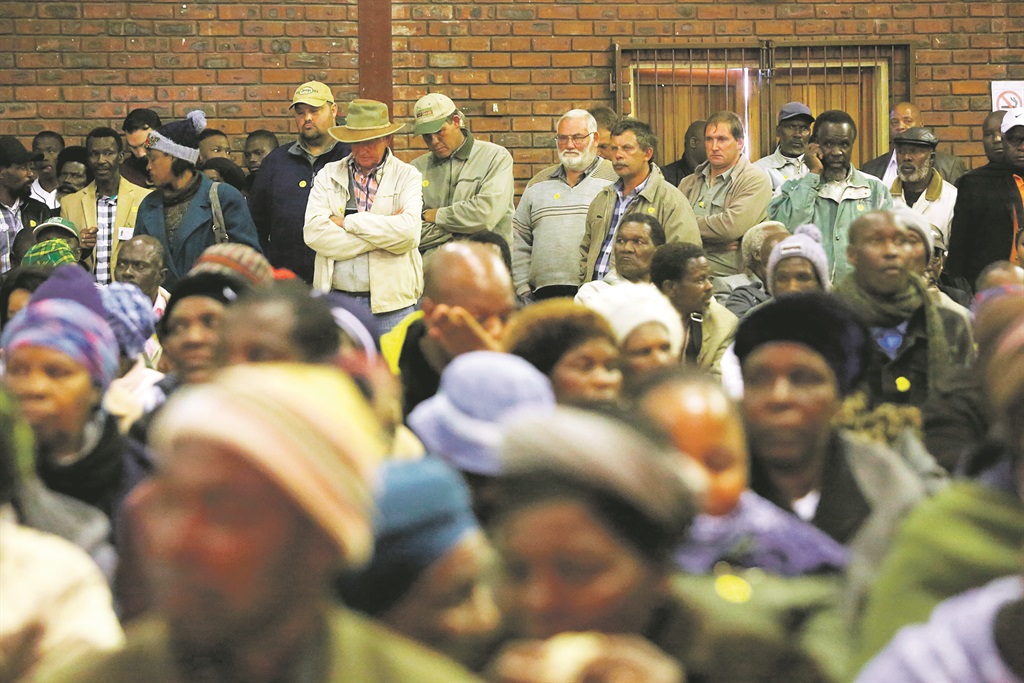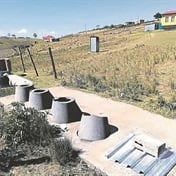
Parliament’s ad hoc committee established to oversee the process of amending the Constitution – specifically the Bill of Rights – remained divided even as the draft of the bill which will be gazetted this week was being finalised.
The bone of contention is the inclusion of the circumstances under which land may be expropriated without compensation.
The fifth Parliament resolved – following an extensive consultative process – that the Constitution needed to be amended to make explicit what is currently implied.
Opposition parties including the DA and Freedom Front Plus vehemently opposed the move, arguing that even the process which led up to the decision was flawed.
Committee member Annelie Lotriet told City Press that the DA’s position remained that the Constitution must not be amended at all.
Given that the horse has now bolted, the next fight for the parties opposing the amendment is for the conditions of expropriation to be included in the Constitution and not left up to national legislation.
“Amending the Constitution requires a higher threshold, two thirds, as opposed to national legislation, which can be easily passed with a majority,” Lotriet said.
Last year the Expropriation Bill was released for public comment, and in that bill the conditions under which expropriation may take place include:
- Where the land is occupied or used by a labour tenant, as defined in the Land Reform (Labour Tenants) Act, 1996 (Act No. 3 of 1996);
- Where the land is held for purely speculative purposes;
- Where the land is owned by a state-owned corporation or other state-owned entity;
- Where the land owner has abandoned the land; and
- Where the market value of the land is equivalent to, or less than, the present value of direct state investment or subsidy in the acquisition and beneficial capital improvement of the land.
DA MP Glynnis Breytenbach told the committee this week that the Expropriation Bill was currently not before any committee of Parliament, making it difficult for the committee to give it any consideration.
“We would like to see those specific circumstances being spelt out in the amendment. And we would suggest that those circumstances could be land occupied or used by labour tenants, land held for purely speculative purposes, land held by state-owned enterprises, land abandoned by its owner, land worth less than any state subsidy it may attract, other state-owned land and communal land held by a chief, and a clause giving discretion to the courts to consider other categories on their merits,” Breytenbach said.
In its current form, the Constitution states that property may be expropriated “subject to compensation, the amount of which and the time and manner of payment of which have either been agreed to by those affected or decided or approved by a court”.
The proposed amendment to the bill would read: “... subject to compensation, the amount of which and the time and manner of payment of which have either been agreed to by those affected or decided or approved by a court, provided that in accordance with subsection (3A) a court may, where land and any improvements thereon are expropriated for the purposes of land reform, determine that the amount of compensation is nil”.
And furthermore that “(3A) national legislation must, subject to subsections (2) and (3), set out specific circumstances where a court may determine that the amount of compensation is nil”.
The EFF, which champions expropriation without compensation as one of its key pillars and which is in favour of wholesale expropriation, was not represented in the committee this week.
Asked about the bill, public works ministry spokesperson Zara Nicholson said: “The issue of a constitutional amendment is separate from the Expropriation Bill, which gives effect to section 25 of the Constitution.
“The bill is not yet before any parliamentary committee. Public works published it in December 2018 and asked for public comment. Over 50 000 comments were received. The department is considering these and consulting all stakeholders, including Cabinet, before a new version of the bill is published in early 2020.”




 Publications
Publications
 Partners
Partners









